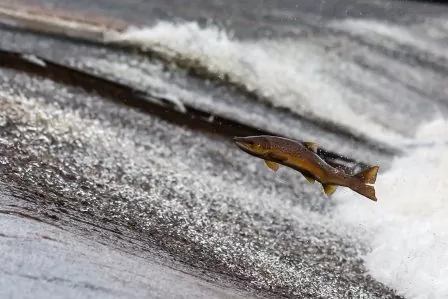The overcrowding in fish farms is responsible for the spread of diseases in wild fish. The toxic food that the farmed fish eat, the pharmaceutical medication that the fish receive and the untreated fish waste that ends up in the sea is not only a threat to the farmed fish, but also to the wild fish, humans and the ocean.
There is extensive scientific evidence that farmed fish contain more toxins than wild fishFarmed fish also contains more pesticides and more antibiotics than wild caught fish. Fish farming in the oceans is a huge threat to the ocean and to the delicate ocean life. The pollution in and around the fish farms is huge … and when a disease breaks out in a farm it can very rapidly spread to the wild fish.
We have to stop commercializing our oceans. Floating factories that breed fish must be restrained.
We cannot make the same mistakes we made when breeding cows, pigs, chickens, etc., … in mega factories. Thais does not result in healthy meat, not to mention the suffering of the animals. Wherever there is overcrowding, illness is always lurking nearby. At fish farms, dangerous pesticides and pharmaceutical medication are used to prevent or control pathogenic pests. When eating treated fish, we subsequently ingest such pesticides and/or pharmaceuticals to a greater or lesser degree.
Farmed fish are different from wild fish and you can actually taste it. Farmed fish, whose DNA had been changed, regularly escape from fish farms and then the polluted farmed fish competes with the wild fish for food, habitat and reproduction. This is an immeasurable threat to native marine life.

Wild fish encounter problems due to, among other things, the fish farms in the oceans.
In 2017, more than 260,000 non-native Atlantic salmon escaped from Cooke Aquaculture Pacific. Mussels began to grow on the dirty nets. The nets collapsed due to the weight and the farmed fish made a dash for freedom. The actual extent of the environmental effects is large, but difficult to fully visualize. A bit like the environmental effects when dismantling nuclear power plants. What are the costs involved and what are the lasting consequences for many future generations? The toll we all pay, both financially and for the health of people and the environment, is very high, undoubtedly.
Eat less fish and buy only wild fish, no farmed fish any more. First find out at a restaurant where they buy their fish from.

Choose wild fish!